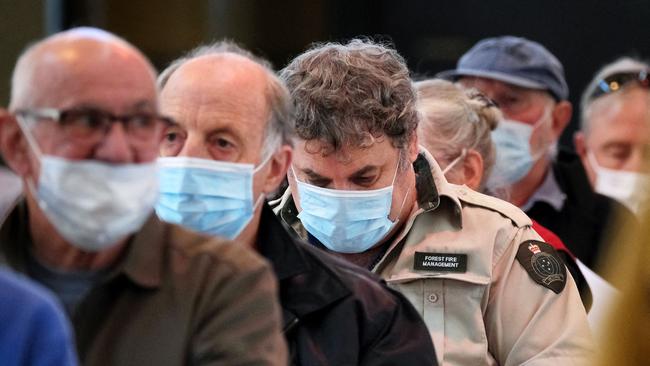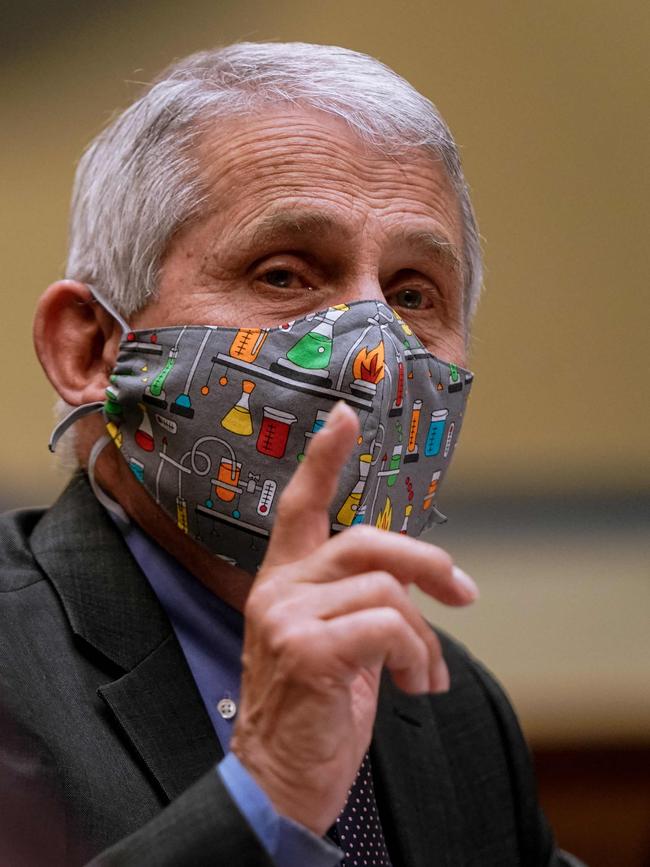We’ll all be rooned by culture of criticism
Australian politics is dominated by a ‘glass half empty’ commentariat hellbent on finding fault and refusing to concede good outcomes.

Donald Horne asserted in his 1964 book The Lucky Country that “Australia is a lucky country, run mainly by second-rate people who share its luck”. But let’s get some perspective.
While Australian politicians seek to find better ways to deliver the vaccines in coming months, using better co-operation between the commonwealth and the states, other nations the world over are battling second, third and fourth waves of the virus.
These are nations that really are led by second-rate politicians, if judged against the job they have done managing COVID-19. While Australia opens a travel bubble with New Zealand — mutually enjoying our largely COVID-free lifestyles — countries such as India daily battle new cases in the hundreds of thousands and surging ever higher. More than three million people across the world have died from the virus and many more will die before it’s brought under control.
You get a distorted view of things sitting here comfortably in Australia, especially when unable to travel and see first hand how bad things are overseas.
Yes, the vaccine rollout has been hampered by problems with the AstraZeneca brand, weighed down by concerns about blood-clotting. Better to find that out now after a limited rollout, mind you, rather than after many millions of citizens in the higher-risk category have been injected with a problematic new medicine dispatched under emergency conditions. That was the experience of Britain and many other countries. And don’t forget the clotting problems are infinitesimally rare. The caution shown is a luxury of our COVID-free circumstances.
Reporting on so-called catastrophic failures with the vaccine rollout butted heads this week with the rather different opinion of US National Institute of Allergy and Infectious Diseases director Anthony Fauci. Readers will remember Fauci’s regular and sober media appearances alongside Donald Trump in which he was prepared to contradict the rantings of his political master.

Fauci isn’t afraid to call a spade a shovel. He did it again this week when asked about the criticisms the Australian government is facing. He told his audience that voters shouldn’t be too harsh, noting how well Australia had done combating the virus (certainly compared with the US, for example, but also compared with almost everywhere else).
Fauci also pointed out how common it was at the early stage of rollouts to experience teething problems — with COVID vaccines and historically when rolling out mass vaccinations.
An acceleration in rollouts as they ramp up is common practice. On Thursday after national cabinet, armed with charts to prove his point, Scott Morrison explained how the vaccine rollout was accelerating. That is likely what we’ll continue to see in the weeks and months ahead, especially now that the states are more involved. This is notwithstanding international supply issues — which most nations are facing — and despite the federal government initially breaking a cardinal rule of politics: don’t over-promise and underdeliver. Had the government not made that mistake, the harshness of the criticisms being levelled at it might be mitigated.
Australian politics is dominated by a “glass half empty” commentariat hellbent on finding fault and refusing to concede good outcomes. This is one outcome of the shift in modern journalism from widespread reporting to widespread commentary.
Australian bush poet John O’Brien (his pen name) originated the phrase “we’ll all be rooned” in his 1919 poem Said Hanrahan. He was talking about the harshness of the Australian climate and its impact on farming, though the popular takeout has been usage of “we’ll all be rooned” as a way to dismiss negative attacks that ruin awaits us all.
The lucky country has more to be proud of during the past year and a half than we should lament, but you wouldn’t know it if you confined your reading and viewing habits to certain media outlets and social media. A culture of grievance is taking over, which has the distorting effect of diminishing legitimate and unequivocal complaints.
Failures to address gender issues is a legitimate concern, for example, even if raising problems is more common than suggesting solutions. Another legitimate grievance: the way the government approached the robodebt debacle; indeed, the way it refused to correct its mistakes soon enough.
Yet these sorts of issues get swept up in wider white noise, meaning that all mainstream voters begin to hear is criticism for criticism’s sake, which many understandably decide is over the top. John Howard as prime minister faced similar overblown commentary, but that was before it became as widespread as it is now.
The reaction to inevitable problems with the vaccine rollout is playing into a mainstream voter rebellion. It helps to explain why the Prime Minister, even though he has lost support in the polls, is far from terminal. More than half the population are satisfied with his performance — hard to believe in the context of hyper-criticisms.
The culture of criticism also is feeding the anti-vaxxer campaign, which could have long-term detrimental consequences for the opening up of international borders and economic interaction. This itself is a risk for the government, which will be judged on economic performance during the coming 12 months.
Don’t get me wrong; Morrison and his inner sanctum aren’t free of criticism. Far from it. His line this week that he won’t let inner-city types who frequent wine bars decide climate policy is the definition of divisiveness, designed to turn citizens against one another based on geography. Simply put, it’s unhelpful.
I’m not interested in a blame game of “who started it”, like we see in playgrounds when teachers catch children fighting during recess. The point is, whether we are talking about commentators who simply air grievances and see fault in anything and everything the political class does, or politicians who use populism as a political weapon, something needs to change — and sooner rather than later, I’d suggest. Otherwise we all really will be rooned.
Peter van Onselen is a professor of politics and public policy at the University of Western Australia and Griffith University.




Watching the collective hysteria because of delays in the national vaccine rollout reminds me that Australia really is the lucky country. So lucky, we will find anything to complain about. Which is not to undersell the problems attached to the rollout or the mistakes ministers have made over-promising and underdelivering.